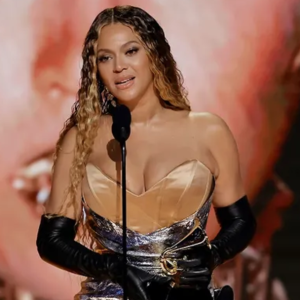Introduction: Beyoncé’s “Formation,” released in 2016, stands as a cultural landmark, challenging norms and sparking profound discussions about race, feminism, and social justice. This article aims to delve into the multifaceted layers of the song, unraveling its true meaning and exploring the impact it has had on society.
Celebrating Black Identity and Culture:
Unapologetically Black: Beyoncé boldly showcases African American culture, redefining traditional narratives by incorporating references to hairstyles, dances, fashion, and historical events like Hurricane Katrina. Through this, she reclaims ownership, challenging cultural appropriation and demanding respect.
Southern Roots: The lyrics paint a vivid picture of Beyoncé’s upbringing in Texas and Louisiana, emphasizing the profound influence of her Southern heritage on her identity. This serves as a powerful reminder of the richness embedded in her roots.
Resilience and Power: While acknowledging the struggles faced by the Black community, “Formation” is a celebration of resilience, strength, and joy. Beyoncé’s declaration, “Know my roots, you know I’m a flower bloomin’ from concrete,” encapsulates the spirit of overcoming challenges.
Social and Political Commentary:
Black Lives Matter: The subtle nods to the Black Lives Matter movement, particularly the reference to the 2016 shooting of Alton Sterling, underscore the song’s commitment to addressing systemic issues. The visual representation of Hurricane Katrina and police brutality in the music video adds a powerful layer to this commentary.
‘$’
Female Empowerment: Beyoncé challenges societal norms surrounding beauty and sexuality, promoting empowerment and leadership among Black women. The song takes a stand against sexism and misogyny within the music industry, empowering women to embrace their authenticity.
Complexities of American Identity: “Formation” navigates the complexities within American society, highlighting the coexistence of wealth and success with systemic prejudice and injustice. This duality prompts listeners to reflect on the contradictions ingrained in the fabric of the nation.
Personal and Individual Narrative:

Celebrating Success: Beyond the broader cultural context, “Formation” allows Beyoncé to celebrate her personal achievements and wealth. This unabashed display of success defies stereotypes, challenging preconceived notions of how Black women should present themselves.
Nuanced View of Relationships: The song explores the intricacies of love and relationships within the Black community. By referencing historical figures like Michelle Obama and Malcolm X alongside personal anecdotes, Beyoncé creates a narrative that transcends the individual, connecting past and present.
Future-Oriented Message: At its core, “Formation” serves as a call to action. It urges listeners to embrace their identity, stay informed about societal issues, and actively contribute to a more inclusive and enlightened future.
Conclusion: “Formation” goes beyond being just a song; it’s a cultural phenomenon that ignited national conversations. Its impact on race, feminism, and social justice solidifies Beyoncé’s status as a cultural icon and a powerful voice for change. As listeners continue to dissect its layers, “Formation” remains a testament to the transformative power of art and its ability to shape the narrative of a generation.





